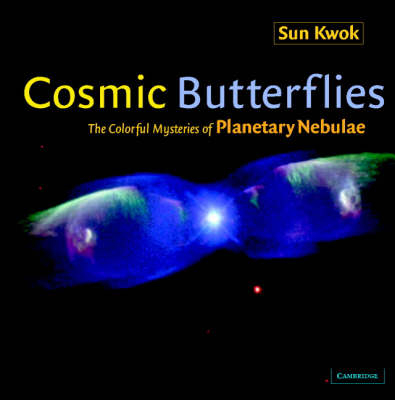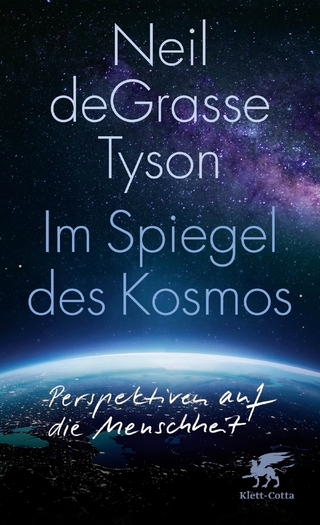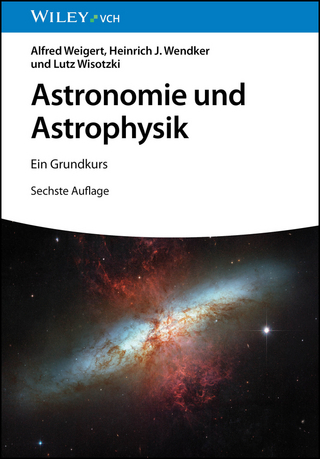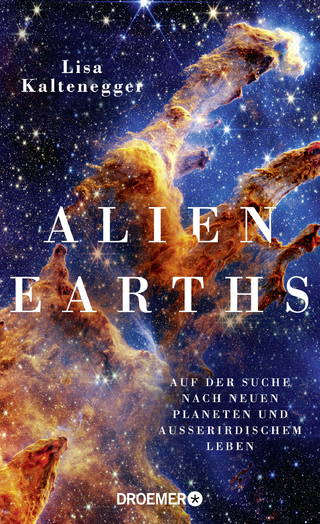
Cosmic Butterflies
Cambridge University Press (Verlag)
978-0-521-79135-9 (ISBN)
- Titel ist leider vergriffen;
keine Neuauflage - Artikel merken
At the end of a star's life, it wraps itself in a cocoon by spilling out gas and dust. Sometime later, a butterfly-like nebula emerges from the cocoon and develops into a planetary nebula. They are among the most beautiful of the celestial objects imaged by the Hubble Space Telescope. Their structures, like bubbles floating in the void, are complemented by a kaleidoscope of colour emitted by glowing gases. Delicate, lacelike, streamers of gas add to their complexity. The production of a planetary nebula by a star is a milestone in the life of a star, an event that foretells the doom of the star when its central energy source runs out. In this book, Sun Kwok tells the story of the discovery process of the creation of planetary nebulae and of the future of the Sun. Full colour illustrations are included throughout the book.
Sun Kwok is a leading world authority on the subject of astrochemistry and stellar evolution. He is best known for his theory on the origin of planetary nebulae and the death of Sun-like stars. His recent research has been on the topic of the synthesis of complex organic compounds in the late stages of stellar evolution. He is the author of many books, including The Origin and Evolution of Planetary Nebulae (2000), Physics and Chemistry of the Interstellar Medium (2007) and Organic Matter in the Universe (2012). He has been a guest observer on many space missions, including the Hubble Space Telescope and the Infrared Space Observatory. He currently serves as President of Commission 34 Interstellar Matter of the International Astronomical Union (IAU), as well as Vice President of IAU Commission 51 Bioastronomy. He served as chairman of the IAU Planetary Nebulae Working Group between 1994 and 2001, and as organizing committee member of the IAU Astrochemistry Working Group.
1. Planetary nebulae - the last hurrah in the life of a star; 2. The shapes and colors of planetary nebulae; 3. How do planetary nebulae shine?; 4. The young and old; 5. Where do planetary nebulae come from and what will they become?; 6. The end of lives of stars: white dwarfs, neutron stars, or black holes?; 7. What is the source of power; 8. Star dust; 9. Gone with the wind; 10. Not with a bang but a whimper; 11. A morphological menagerie; 12. Butterflies in the sky; 13. The missing link; 14. Stellar metamorphosis; 15. Unsolved mysteries; 16. How many are there?; 17. Measuring the size and mass of the universe with planetary nebulae; 18. Old stars as molecular factories; 19. Do we owe our lives to planetary nebulae; 20. Glossary; 21. Some commonly observed planetary nebulae; 22. Further readings; 23. Notes on images.
| Erscheint lt. Verlag | 16.8.2001 |
|---|---|
| Zusatzinfo | 117 Plates, color; 24 Halftones, unspecified; 3 Line drawings, unspecified |
| Verlagsort | Cambridge |
| Sprache | englisch |
| Maße | 257 x 261 mm |
| Gewicht | 963 g |
| Themenwelt | Sachbuch/Ratgeber ► Natur / Technik ► Weltraum / Astronomie |
| Naturwissenschaften ► Physik / Astronomie ► Astronomie / Astrophysik | |
| ISBN-10 | 0-521-79135-9 / 0521791359 |
| ISBN-13 | 978-0-521-79135-9 / 9780521791359 |
| Zustand | Neuware |
| Haben Sie eine Frage zum Produkt? |
aus dem Bereich


